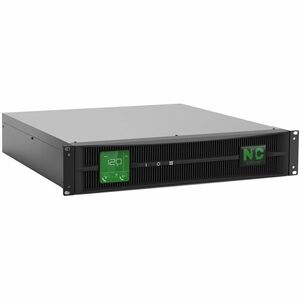In today's technology-driven world, power outages and fluctuations can cause significant disruptions to our daily lives and businesses. The reliance on electronic devices and the increasing demand for uninterrupted power supply have made power protection an undeniable necessity. When it comes to safeguarding valuable equipment and data, two commonly used solutions are UPS systems and battery backups. While both serve the purpose of providing backup power, it is important to understand the differences between the two and the advantages they offer.
Understanding UPS Systems and Battery Backups
A UPS system, or Uninterruptible Power Supply, is a comprehensive power protection solution that consists of a battery backup, surge protection, and voltage regulation. It is designed to provide seamless power supply during outages and regulate voltage fluctuations to protect sensitive equipment. On the other hand, a battery backup is a simpler solution that primarily focuses on providing temporary power during blackouts.
The Distinction: UPS Systems vs. Battery Backups
It is essential to note that a UPS system is also a battery backup, but a battery backup is not necessarily a UPS system. While both options use batteries to provide backup power, the key difference lies in their functionality and additional features.
Power Protection Capabilities
UPS systems, especially lithium ion-based UPS systems, are known for their ability to deliver continuous power supply without interruption, ensuring that critical systems remain operational during outages. They offer seamless switchover from the main power source to the battery backup, eliminating any downtime or data loss. UPS systems also provide voltage regulation, protecting devices from power surges and fluctuations, which can cause irreversible damage.
Battery backups, on the other hand, are limited to providing temporary power during outages. They do not offer the same level of voltage regulation and surge protection as lithium ion UPS systems. While battery backups can be useful for short-term power outages, they may not be sufficient for critical systems or devices that require constant power supply.
Power Capacity and Runtime
UPS systems are available in various sizes and power ratings, allowing users to select the appropriate capacity based on their specific needs. The power rating of a UPS system determines the amount of power it can deliver to connected devices. This is crucial for businesses or individuals who rely on high-power-consuming equipment or have many devices to protect.
Battery backups typically have a smaller power capacity compared to UPS systems. They are designed to provide limited power for a short duration, usually enough to save work and shut down devices properly. Battery backups are ideal for personal computers, home entertainment systems, or small office setups that require temporary power during outages.
Advanced Features
UPS systems often come with additional features and functionalities that enhance power protection. These can include LCD displays for monitoring power status, automatic voltage regulation (AVR) to stabilize voltage fluctuations, and the ability to manage and control power remotely. UPS systems also offer the option of expandable battery packs, allowing users to increase runtime as needed.
Battery backups, being simpler in design, typically lack these advanced features. They are straightforward solutions that focus solely on providing temporary power during outages.
The Role of Lithium Ion Batteries in Power Protection
Lithium ion batteries have revolutionized the power protection industry with their numerous advantages over traditional lead-acid batteries. Their compact size, lightweight nature, and high energy density make them an ideal choice for UPS systems and battery backups. Lithium ion based UPS systems offer businesses a host of advantages.
Enhanced Performance and Efficiency
Lithium ion batteries provide higher energy storage capacity compared to lead-acid batteries, allowing for longer runtimes and increased power availability. They also have a longer lifespan, enabling users to benefit from reliable power protection for an extended period. Additionally, lithium ion batteries have a faster recharge time, ensuring that the backup power is restored quickly after an outage.
Safety Concerns and Shipping Regulations
It is important to consider safety concerns and shipping regulations when dealing with lithium ion batteries. While lithium ion batteries offer significant advantages, they do require specific handling and shipping procedures due to their potential fire risks. It is essential to work with experts in lithium battery UPS systems who are well-versed in the regulations and guidelines for safely shipping lithium batteries.
The need for power protection is undeniable in today's technology-dependent world. When choosing between UPS power systems and battery backups, it is crucial to consider the specific requirements of your equipment and the level of power protection needed. UPS systems offer comprehensive power protection, including uninterrupted power supply, voltage regulation, and surge protection. Battery backups, on the other hand, provide temporary power during outages but may not be suitable for critical systems. The incorporation of the lithium ion battery into the equation further enhances the performance and efficiency of power protection solutions.
Let N1 Critical Technologies Help You Choose the Right Lithium Battery Backup for Your Needs
By understanding the distinctions and advantages of UPS systems and battery backups, you can make an informed decision to ensure uninterrupted power supply and safeguard your valuable equipment and data. As experts in the industry, we’ve helped many clients lower their total cost of ownership and achieve greater reliability and runtime with our lithium UPS battery systems.
Ready to experience higher power density, more safety and reliability, and all the other benefits of our lithium ion solutions? Just contact us today for more information or to get started!



